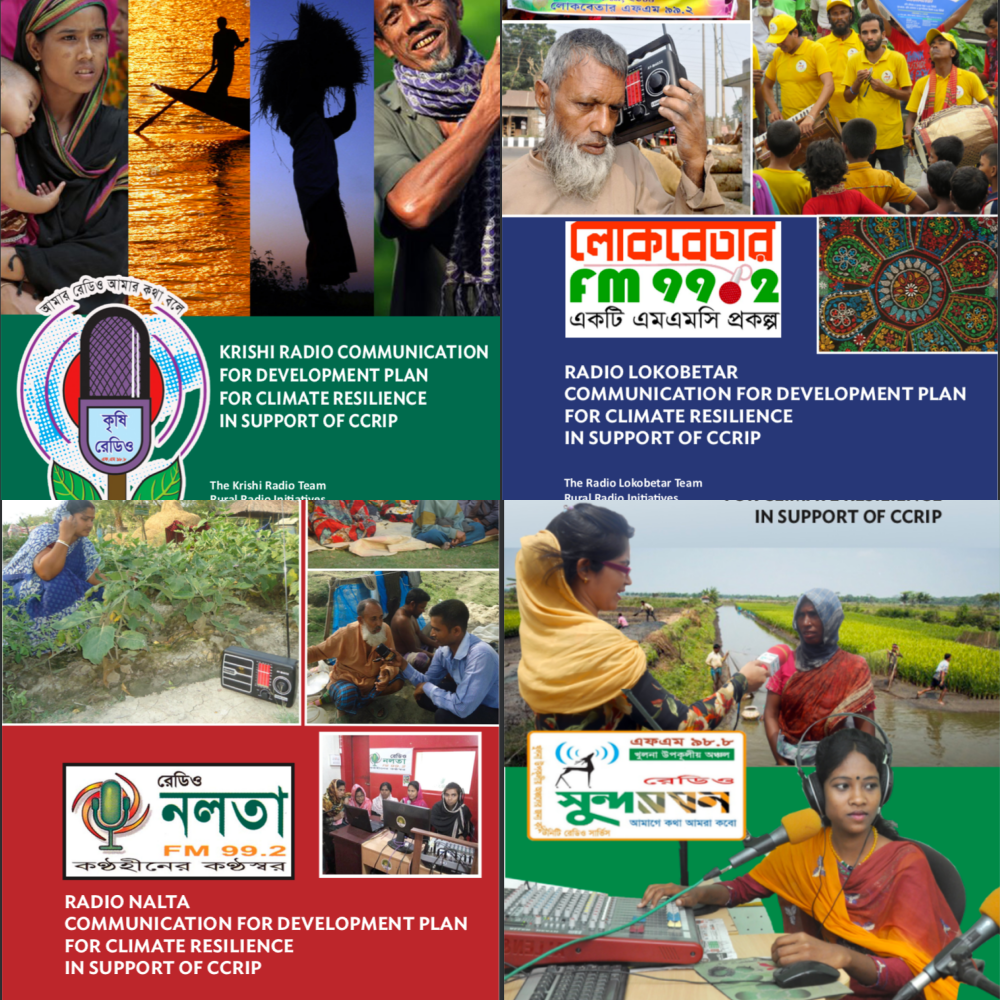 Four community radios in coastal areas of Bangladesh complete their respective Communication for Development (ComDev) plan for climate resilience among family farmers. The Comdev plan focuses mainly on enhancing climate resilience among small farmers through improved road connectivity, improved market services, and enhanced climate change adaptation capacity. To accomplish these, the plan specifies the systematic process by which family farmers might be provided access to timely information about climate resilient agricultural infrastructure and technologies.
Four community radios in coastal areas of Bangladesh complete their respective Communication for Development (ComDev) plan for climate resilience among family farmers. The Comdev plan focuses mainly on enhancing climate resilience among small farmers through improved road connectivity, improved market services, and enhanced climate change adaptation capacity. To accomplish these, the plan specifies the systematic process by which family farmers might be provided access to timely information about climate resilient agricultural infrastructure and technologies.The effort in developing rural radio programs is a component of the Rural Radio Initiatives (RRI) of the Coastal Climate Resilient Infrastructure Project (CCRIP). Funded by IFAD, ADB, and KfW, radio programs in CCRIP are developed strategically to disseminate widely the opportunities derived from the new project infrastructures, market prices, and other important economic and cultural information. Of the 14 community radios in the country, four are engaged as RRI-CCRIP partners. They are the Krishi Radio, Radio Nalta, Radio Lokobetar, and Radio Sundarban.
Since 2015, the managers, production staff, and volunteers of the four rural radios have been undergoing the cycle of ComDev planning, implementation, monitoring and evaluation using community radio as the core medium. With about 12-33 radio programs produced and aired during 5-8 hours a day, a preliminary outcome evaluation indicates that the four community radios have brought about better access to targeted information on climate resilience among small farmers. There are now 100 listening clubs with 20 members each. With their multiplier effect, the radio programs reach out to almost two million individuals, evidence that their demand as coastal people for correct and timely information is now being heard and paid attention to.
Community radio programs are participatory in nature. Village volunteers and members of the listener clubs have been trained and form part of identifying priority information needs, gathering necessary information and knowledge responsive to such information needs, producing relevant radio program formats, and hosting radio programs.
As a result, communities vulnerable to climate change have become better informed and actively engaged in climate resilient innovation and livelihood adaptation. This has been shown by the majority of the targeted population currently adopting climate resilient technologies that enable them to carry on with their income-generating agriculture-based livelihood. Among these technologies are the use of saline tolerant crop varieties, sarjan method, biofertilizer, floating agriculture, water management, and polders. (Dr. Cleofe S. Torres)